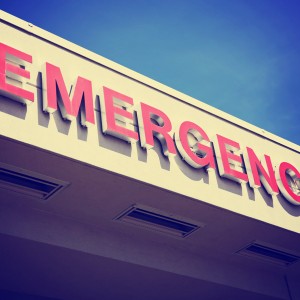
Emergency medicine may also be known as casualty, accident and emergency (A and E), or be referred to as ED (Emergency Department). Emergency physicians coordinate the acute team within the health system, typically within a hospital setting where the emergency department operates 24 hours a day every day of the year.
Because any sort of health event can come through the emergency department doors, working in emergency medicine requires a broad range of knowledge including anatomy, pathology, physiology and pharmacology with specialist skills in resuscitation and diagnosis in the acute phase of an illness or trauma.
In emergency medicine you may be treating heart attack symptoms in an elderly patient one moment and dealing with an asthmatic toddler the next. The emergency department of a hospital can be a busy and chaotic place, or quiet and slow and can change moods in a matter of minutes.
Doctors and nurses come to work in emergency medicine from a variety of backgrounds. Working in the emergency department requires physical endurance and the ability to maintain clear thinking in stressful and sometimes emotive situations.
Because emergency staff are not responsible for their patients once they leave the emergency department it can be difficult to follow up on patient outcomes but the advantages of working in emergency medicine are that it is an exciting and challenging role requiring practical, hands-on skills and the ability to multi-task.
Shifts for physicians and nurses working in the emergency department are usually eight, 10 or 12 hourly. Flexible work arrangements are often considered a perk of emergency medicine practitioners working in Australia and New Zealand.
Some other benefits can include fixed hours with minimal or no on-call, stretches of time rostered off to allow for mini breaks perhaps spent enjoying beaches or ski fields. Part-time work is also available to suit those with families or other commitments.
Working in emergency medicine offers opportunities for covering special events and other roles outside the hospital, and even working abroad. Entry to emergency medicine depends on the country you are working in but will typically include specialised training to deal with the unique experiences that working in an emergency department presents.
If you have the ability to shift gears quickly, have good observation, assessment and prioritisation skills and can remain calm in a chaotic environment then working in emergency medicine could be a good fit for you. HealthStaff Recruitment currently have emergency medicine positions available so feel free to browse those available today.
